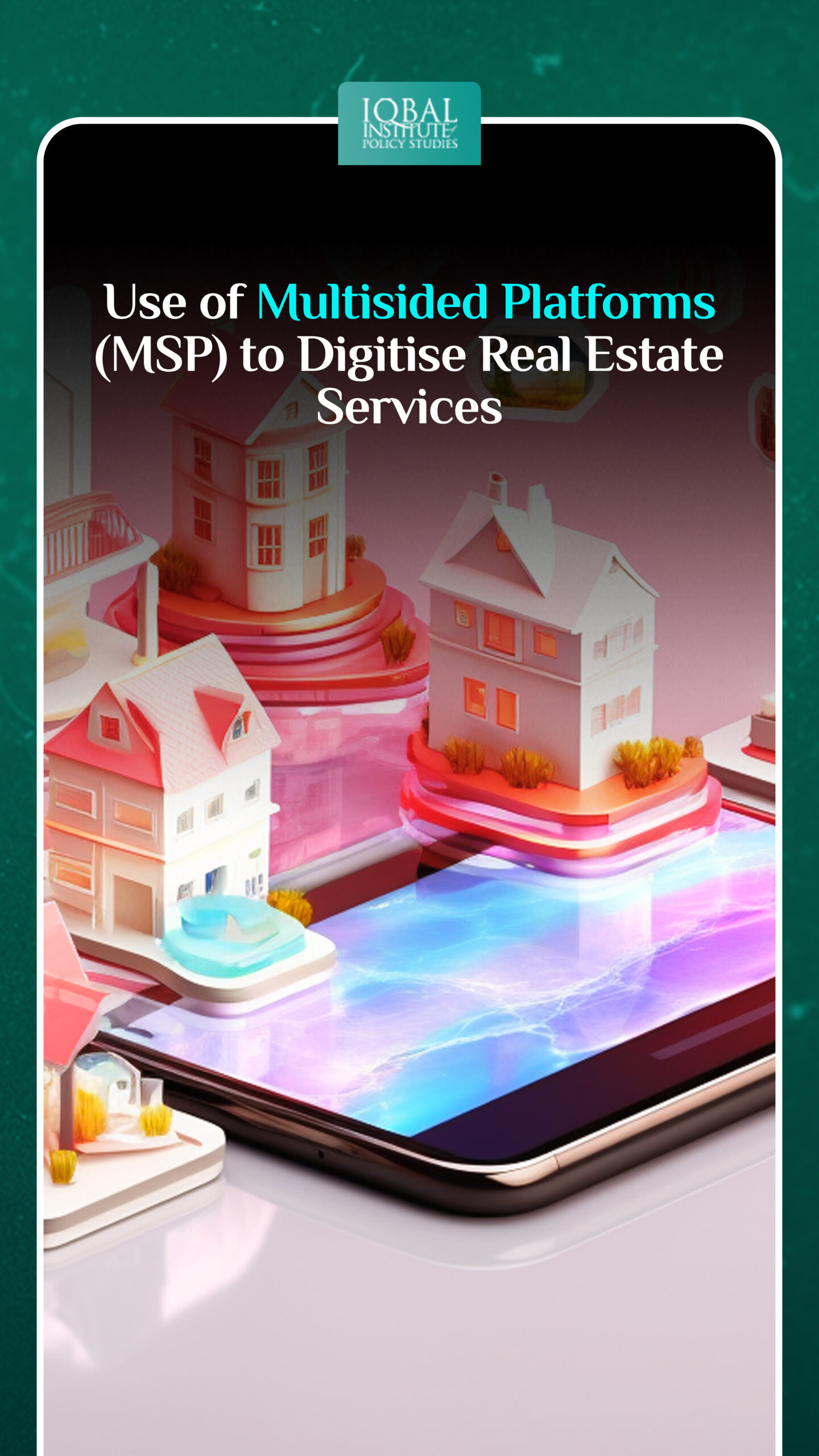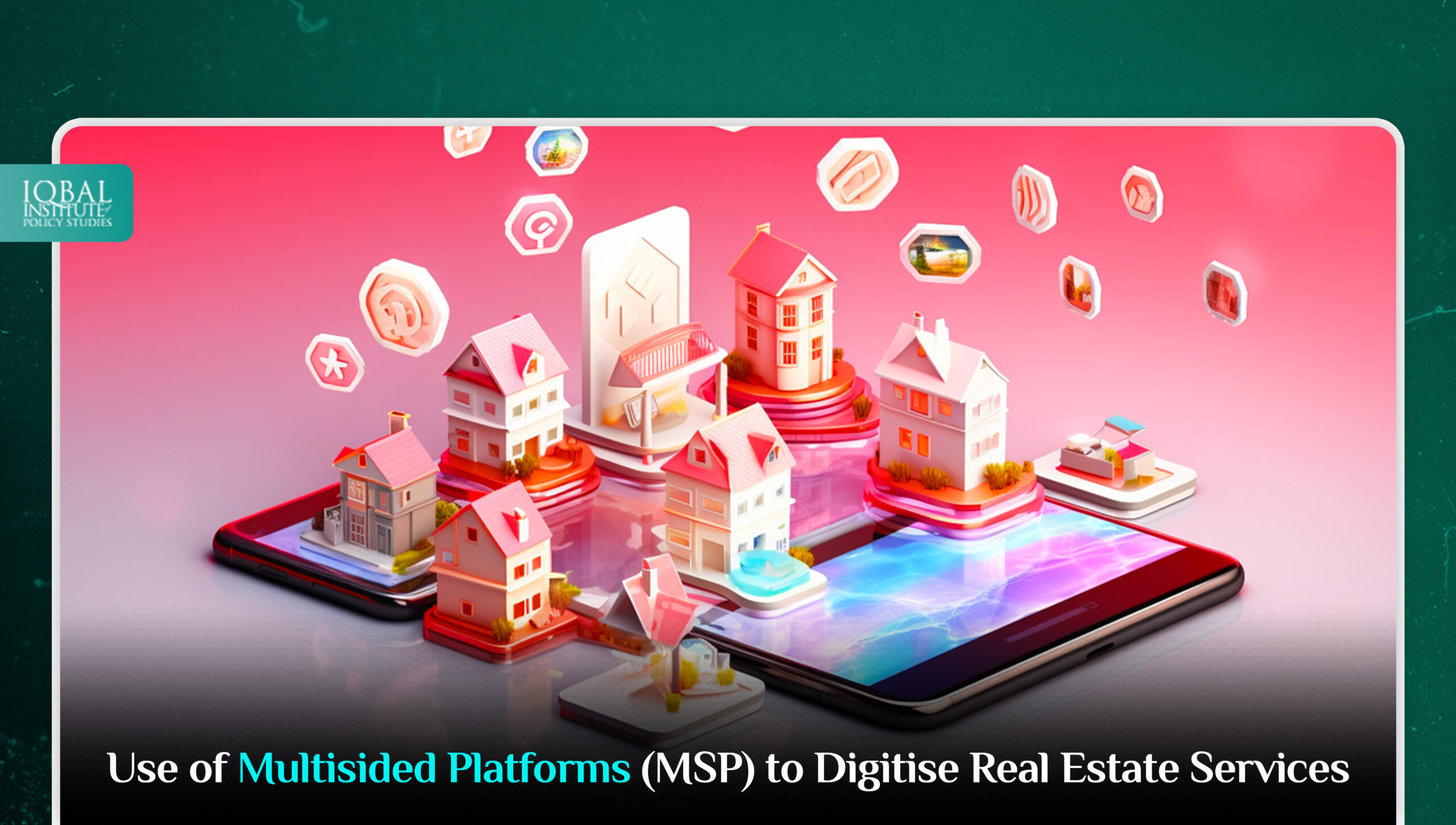Digitisation is changing the world rapidly and transforming the working environment and consumer demand. Most industries have realised how digitisation offers real opportunities for improved customer-centricity, faster growth and greater innovation. Exclusively, information-intensive industries are focusing more to invest on digitising to have a comparative advantage. Among all the industries the financial industries are at the forefront of digitising due to its information intensive products and services, whereas the real estate sector is far behind due to its fragmented nature. The middle eastern countries are making efforts to introduce digital elements into the real estate sector. For example, the Dubai Land Department has a website for registering various property-related transactions and activities, such as property rent, sale, mortgage or transfer. However, there are still other digitisation initiatives that can be implemented. These include the use of digital Multi-Sided Platforms (MSPs) to reimagine the way real estate services are delivered. Few successful examples of MSP are Uber, Airbnb, Uber, etc. The real estate sector has immense potential for growth. The concept of digital MSPs can be a great way for real estate regulators and policymakers in the region to further unlock and maximise the benefits that digitisation can bring to society and this industry.
Use of MSPs in the Real Estate Industry
To implement MSP in the real estate market it is difficult for the government who are in a budget deficit. Recently, the most prevalent form of MSP in the real estate sector is in the form of aggregator websites, which holds information about listed land or rent properties. These aggregators offer advanced search capabilities and virtual property viewing experiences. Examples include PropertyFinder, Bayut.com and many more. However, MSPs can take one step further and be built to help people find real estate:
-Brokers and agents
-Auditors and tax specialist
-Arbitrators and lawyers
-Investor (i.e., crowdfunding for property investments)
-Valuation consultants
-Asset management service providers
-Lending and mortgage services providers
-Energy and sustainability management services providers
Benefits of Implementing MSP
Digitising the real estate sector would enhance the sense of security and safety and reduce rent-seekers profit. Moreover, it also reduces the time cost for both tenants and landlords. Different countries are introducing digital rental services, such as Dubai, USA, India, Germany etc. Digital contracts have been introduced in Germany, and recently the largest housing company has launched a digital lease sign feature.
Governance is a major hurdle in the real estate sector. The property dealing companies are working offline and have to deal with piles of paperwork and in-person meetings. Getting a suitable and affordable house for rent becomes a challenge for the migrants and daily wagers. On the other side, property owners cannot find decent tenants due to communication drawbacks and data privacy concerns.
However, digitisation helps address legal issues and foster opportunities for the real estate sector. The end-to-end digital process would quickly solve customers’ queries and select suitable tenants by vetting their backgrounds.
-View and easily navigate listed real estate services
-Compare rates and the verified expertise of different real estate services providers
-Schedule appointments and book services
-Make secure payments
-View the status of services request in real time
-Get life support
-View and submit rating and review
-Essential Factors to Build MSP
Monetising Strategy
It is important to look after the ways and avenues for monetising MSP operators. Many companies use a commission model, where they are mentioned to take a fixed price for their services or products which will be sold on their platforms. Other models include charging subscription or listing fees or offering “featured ads”, where a user group pays to promote their services or products on the platform.
Level of Governance
There are two different ways through which these platforms can be managed i.e., managed and true. It was stated that the ‘True’ version of MSP typically lacks policies related to who can access the platform and how users interact on the platform (i.e. they simply connect user groups). On the other hand, with ‘Managed’ MSPs, platform operators are more involved in improving the user experience by incorporating quality assurance measures (e.g. background checks and inspections), reviewing verification, consigning/shipping, tracking and payment protection services.
Way Forward
The digital transformation around the world has changed the idea that not all prosperous countries need brick-and-mortar structures to thrive. The PropTech and Real Tech companies significantly and positively impact the real estate sector development. The digitising real estate sector could help to manage residential and commercial assets more effectively, increase transparency and security and save time for tenants and landlords. Moreover, technology gives insight to tenants about the space of the property and helps evaluate property valuation and purchasing opportunities. As per the research, 50% of the brokers have said that digitisation has the potential to accelerate the sector’s growth. Private and public partnerships can revamp the rental industry in Pakistan. The private sector of Pakistan can innovate rental services to meet the technological requirements of tenants, which in turn increases the real estate value.
This article is written by Sehrish Irfan. Sehrish is a research analyst at The Iqbal Institute of Policy Studies (IIPS).



Leave a Reply